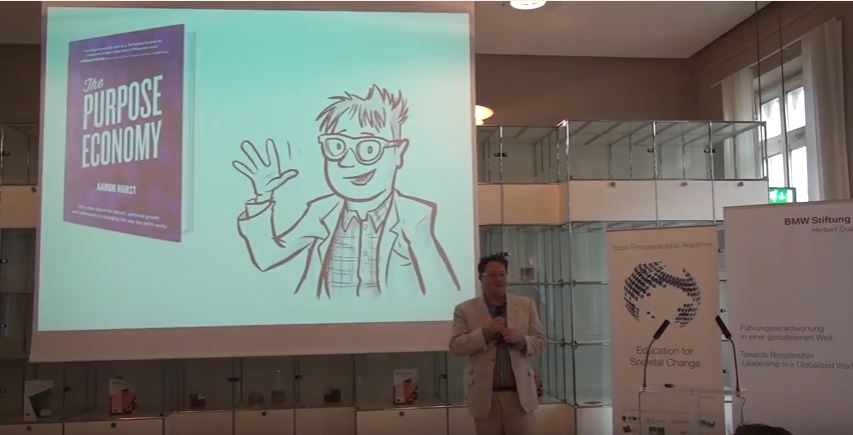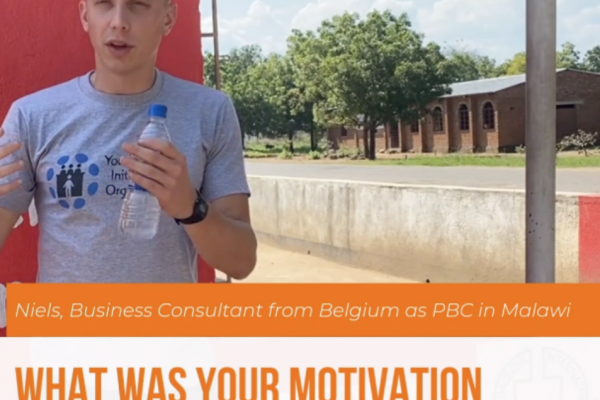In his essay, Aaron Hurst, founder of the U.S. based Taproot Foundation and pioneer of the pro bono movement, argues for a paradigm shift in the way nonprofits and businesses cooperate.
Running a nonprofit has never been easy, but the challenges facing executive directors today are unprecedented. With a government in crisis, shifting demographics, and globalization, society is asking more and more of the social sector. At the same time, the business of managing an organization is becoming increasingly complex. Contemporary organizations must operate online and offline. They must comply with mountains of regulations and meet a broader set of community expectations, all with increased transparency. They must also meet the needs of new generations of employees who demand more from their employers. Not to mention that they have to provide and manage all this new infrastructure while being told they can’t spend the equivalent budget on overhead that their corporate counterparts do – no one wants to fund it. I believe that to equip nonprofits to manage this increased complexity, we must help them make pro bono consultants (designers, engineers, lawyers, MBAs, and so on) a reliable and integrated part of their talent strategy. It is going to be increasingly important for all nonprofits to see pro bono consultants as a regular and deeply integrated part of how they do business in the nonprofit sector – a dotted-line part of every organizational chart.
Aaron Hurst at our Lecture Series about “Purpose Economy”
Mit Klick auf das obige Video wird dieses von Youtube geladen. Sie stimmen in diesem Zusammenhang der Übertragung Ihrer Daten an Youtube zu. Weitere Informationen dazu finden Sie in der Datenschutzerklärung.
Pro bono – short for pro bono publico, which means “for the public good” – has come to mean the donation of professional services to advance public good. In short, pro bono is a free, donated professional service that furthers a nonprofit’s mission. While financial donations that support direct services are an important part of the nonprofit financial picture, many nonprofits dream of potential support that goes well beyond big checks. What they really need, they say, are donations that will strengthen their organizational structures – donated skills from professionals who have expertise in marketing, finance, human resources, accounting, information technology, strategic planning, and other areas of management. By recruiting and managing these donated skills, a nonprofit can extend their talent without extending their expenses.

Pro bono service is an increasingly common part of how many nonprofits build and maintain their organizations, especially as the need for their services increase and financial resources remain tight. Pro bono services are used in a wide variety of functions within a nonprofit—most commonly in legal work but by no means exclusively. In a national 2011 study conducted by the Taproot Foundation and FTI Consulting (pro bono of course), a clear picture emerged as to the degree to which nonprofits in the USA are using pro bono. Besides legal counsel which was used by 60% of the respondents, other areas included marketing (41%), human resources (30%), financial and administrative support (29%), financial advisory or consulting (27%), information technology (27%), organizational design or coaching (26%), and board member or executive search (20%). The Corporation for National and Community Service reported in 2008 that an estimated $15 billion in pro bono service is donated every year.
However, for making pro bono work the following five principles should be applied:
- Principle One: Know and Define Your Needs
You must engage pro bono resources proactively, according to your organizational priorities. - Principle Two: Get the Right Resource for the Right Job
Successful pro bono engagements align people, process, and scope to address your specific need. - Principle Three: Be Realistic About Pro Bono Deadlines
Be thoughtful about which projects you can address – even small tasks can take longer than expected, and pro bono is rarely a good solution for urgent needs. - Principle Four: Act Like a Paying Client
If you want your pro bono consultants to treat you like a paying client, begin by treating them as if you were paying. - Principle Five: Learning Goes Both Ways
A pro bono project is a partnership: you supply knowledge of your organization and field, while the pro bono consultants bring functional expertise (and a fresh perspective).
A vibrant nonprofit sector in the twenty-first century will require a robust pro bono marketplace. In my view, that requires focus and investment on three keys things. First, we need to grow supply by building the pro bono ethic into the business professions and capturing it by helping institutions, from companies to professional schools, build pro bono programs. Second, we need to grow demand by building the capacity of social sector organizations to effectively scale their use of pro bono service. The ultimate goal is for nonprofits to be what – at Taproot – we call “powered by pro bono;” organizations leveraging this resource independently and sustainably. Finally, we need to create the infrastructure for this marketplace to operate effectively and efficiently. We need to establish standards for effective pro bono, incentives for corporations to engage, linkages for easy entry, supporting technology, and shared knowledge. These strategies will lead to the creation of a marketplace that, like philanthropy, is large, professionalized, transparent, and readily accessible to nonprofits in communities around the globe.
Author: Maja Heinrich, BMW Foundation









3 Comments.
You’re so awesome, man! I cant believe I missed this blog for so long. Its just great stuff all round. Your design, so amazing! I cant wait to read what you’ve got next. I love everything that you’re saying and want more, more, MORE! Keep this up, man! Its just too good.
I must say you have hi quality content here. Your website should go viral.
Excellent site you’ve got here.. It’s hard to find quality writing like yours nowadays. I really appreciate people like you! Take care!!